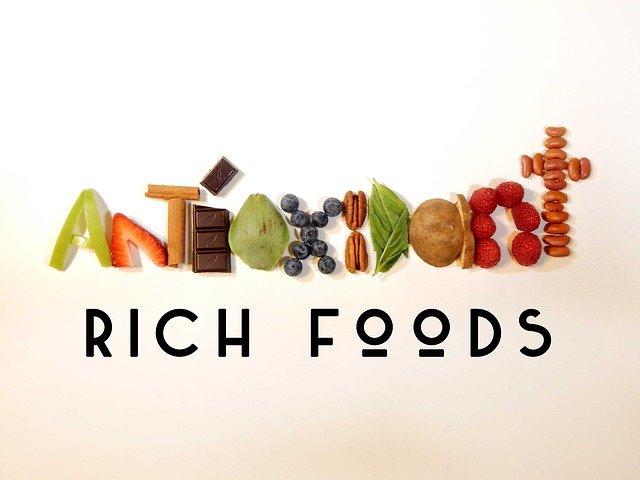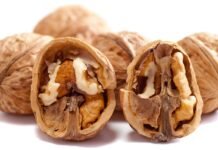Inflammation inside your body is natural. It is a reaction that helps fight infections that may occur, from time to time. Inflammation also takes place when you need to heal an injury and it plays a part in flushing out toxins. However, chronic inflammation (when a body is constantly in this process) is dangerous. That is why it is important to add anti-inflammatory foods to your diet. Here are some of the best ones for you.
How to Reduce Inflammation inside Your Body
Persistent or chronic inflammation can cause many different illnesses, such as diabetes, heart disease, high blood pressure, stroke, as well as cancer. Recent studies have also shown that it can make you more vulnerable to COVID-19. In fact, it influences blood flow in a negative way, harms cell tissues as well as organs. In other words, if you don’t do anything about it, your risk factors of getting sick are higher.
The various foods you will find below, can be inserted in a nutritious diet that will help you reduce inflammation inside your body. But there are other ways to help as well, that you should take in consideration, to complete the effect of the whole-food, plant-based diet found in this article. The most important factors, that play a role in inflammation, are stress and anxiety. Fighting them is the best way to start reducing the inflammation. To do so, you need to exercise and get quality sleep every night. But in order to do that, you need to learn how to breathe under stress. Otherwise, trying to exercise and sleeping at night will become difficult tasks. There are breathing techniques to help you solve that problem, which you can find at: https://www.intermittent-breathing.com/.
Studies Show a Diet Rich in Plant-based Whole Foods Reduces Inflammation
Two recent studies have shown that the addition of fresh vegetables and fruits inside your diet will help to reduce inflammation inside your body, and thus prevent you from illnesses. Both were published in 2019. The first one was printed in” Nutrients.” It found a relation between the Mediterranean diet and a reduction in the number of cases of cancer. It showed that key nutrients in a diet help fight chronic inflammatory cells. The other one, published in “Nutrition and Aging”, came to the conclusion that an anti-inflammatory diet reduces neuroinflammation, lowering the risks of Alzheimer’s disease.
It goes to prove that changing the way we eat, by moving to a diet featuring plant-based whole foods, will protect us against chronic inflammation and keep us away from many illnesses. It should also be mentioned that these studies found that staying away from refined sugar, helps greatly. Here are the ten foods you should add to your diet now, in order to fight inflammation that can take place inside your body.

COCOA
We thought we would start with a food that would make most people happy: cocoa. It is the powder left behind when cacao beans have been grounded. You find it in dark chocolate, a sweet pleasure that will also make you healthier, thanks to flavonoids it contains, which plays a part in the reduction of oxidative stress inside your body. That was confirmed by a 2018 study, that was published in “Nutrients.”
BERRIES
Continuing with sweets: Berries (blueberries, strawberries, etc.) contain a large number of antioxidants, protecting you from a variety of diseases. Again, this was confirmed by a study published in “Molecules” in 2017. It found that berries are neuroprotective, and that they may be linked to lower toxicity and inflammation, which usually result in chronic diseases.
GRAPES
This other fruit is full of Vitamin K, copper and manganese which makes it a nutritious food to add to any diet. But it is also a source of resveratrol, which helps in the prevention of intestinal inflammation, according to a study published in “Nutrition Research Reviews,” in 2017.
AVOCADOS
This year, a study gave us even more reasons to eat avocados. It showed that they encourage antioxidant and anti‐inflammatory effects, as they improve enzymatic activity and modulate obesity related impairments in the anti‐inflammatory system of different tissues. In other words: it helps reduce obesity.
TOMATOES
The last fruit on our list is the tomato. It was proven, in a 2017 study, that tomatoes reduce pro-inflammatory compounds, thanks to the lycopene found inside them. It is particularly helpful for men with prostate complications. It contains vitamin C, potassium and folate, and they also play a part in reducing the risks of contracting cardiovascular diseases.
MUSHROOMS
After the fruits, here come the vegetables in our list. Mushrooms are low in calories, so you can eat as many as you want. They protect against gut inflammation, by reducing the inflammatory cytokines (2018 study). Furthermore, they contain large quantities of selenium, copper and Vitamin B. People suffering from sepsis (a body’s response to infection), should also eat mushrooms.
EXTRA VIRGIN OLIVE OIL
There have been so many studies proving the benefits of extra virgin olive oil. The latest one, published in “Nutrients,” in 2019, went to conclude that the polyphenols found inside extra virgin olive oil, decreases the number of inflammatory markers in your body. It also concluded that it can help prevent obesity as well as other chronic diseases.
PEPPERS
A study published in 2017 in “Pharmacognosy Magazine,” showed peppers to have anti-inflammatory properties, due to the high level of capsaicin they contain. It said that consumption of chili peppers reduces inflammatory effects in diseases found in muscles, like myotube atrophy. They also contain a high amount of Vitamin C.
TURMERIC
Here is another spice (since peppers is also used as one) which is known for its many health properties. Thanks to the curcumin it contains, it inhibits inflammation. That is what suggests a 2018 study published in “The Journal of Immunology,” which also said that turmeric, used as a supplement, can help alleviate symptoms of diseases like rheumatoid arthritis and osteoarthritis.
GREEN TEA
Finally, let’s end this article with something you can drink. Green tea has been known, for a long time now, for its antioxidant properties. It was confirmed in a 2017 study, published in “Nutrients,” which showed that it contains polyphenols, reducing inflammatory markers in the body, such as cytokines.


























